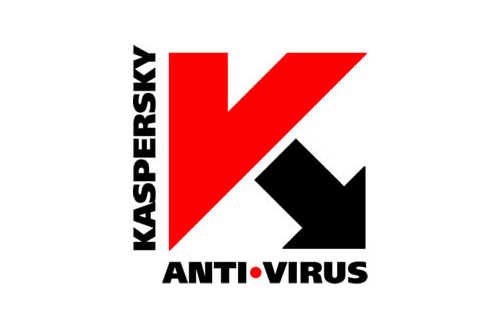Kaspersky quits BSA over US piracy law support
The Russian security company doesn't like the BSA's stance on the US Stop Online Piracy Act.


Kaspersky has announced it is leaving the Business Software Alliance (BSA) over the latter's support of the US Stop Online Piracy Act (SOPA).
The Russian security firm said it will not renew its membership come January next year, even though the BSA has something of a mixed stance on the SOPA legislation.
SOPA could ask ISPs to monitor traffic and potentially block access to websites that are breaking copyright law, in much the same way the UK's Digital Economy Act proposed.
We are very disappointed to learn that Kaspersky Lab may not renew their membership in BSA, especially given we share many of their concerns over SOPA.
"Kaspersky Lab is occasionally mentioned in the discussion as a member of the Business Software Alliance (BSA), which supports the SOPA initiative," a Kaspersky spokesperson said.
"Kaspersky Lab would like to clarify that the company did not participate in the elaboration or discussion of the SOPA initiative and does not support it. Moreover, the company believes that the SOPA initiative might actually be counter-productive for the public interest, and decided to discontinue its membership in the BSA as of 1 January 2012."
The BSA said it actually shared some of the views of the security giant on SOPA.
Sign up today and you will receive a free copy of our Future Focus 2025 report - the leading guidance on AI, cybersecurity and other IT challenges as per 700+ senior executives
"We are very disappointed to learn that Kaspersky Lab may not renew their membership in BSA, especially given we share many of their concerns over SOPA," said Katherine McGuire, the BSA's vice president of for Government relations.
"Kaspersky has been a valued member of BSA over the past two years, and we look forward to working with them again in the future."
BSA was initially in support of the SOPA, but in November announced a number of concerns.
"We do not have an affiliation with CarrierIQ. Android is an open source effort and we do not control how carriers or OEMs customize their devices," it said in a blog post.
"Valid and important questions have been raised about the bill. It is intended to get at the worst of the worst offenders. As it now stands, however, it could sweep in more than just truly egregious actors."
Tom Brewster is currently an associate editor at Forbes and an award-winning journalist who covers cyber security, surveillance, and privacy. Starting his career at ITPro as a staff writer and working up to a senior staff writer role, Tom has been covering the tech industry for more than ten years and is considered one of the leading journalists in his specialism.
He is a proud alum of the University of Sheffield where he secured an undergraduate degree in English Literature before undertaking a certification from General Assembly in web development.
-
 Trump's AI executive order could leave US in a 'regulatory vacuum'
Trump's AI executive order could leave US in a 'regulatory vacuum'News Citing a "patchwork of 50 different regulatory regimes" and "ideological bias", President Trump wants rules to be set at a federal level
-
 TPUs: Google's home advantage
TPUs: Google's home advantageITPro Podcast How does TPU v7 stack up against Nvidia's latest chips – and can Google scale AI using only its own supply?
-
 UK government to fund regional tech programs up to £20m
UK government to fund regional tech programs up to £20mnews Local and regional partnerships invited to bid for support for established or developing projects
-
 Three things you need to know about the EU Data Act ahead of this week's big compliance deadline
Three things you need to know about the EU Data Act ahead of this week's big compliance deadlineNews A host of key provisions in the EU Data Act will come into effect on 12 September, and there’s a lot for businesses to unpack.
-
 Government’s ‘Humphrey’ AI tool helps local authorities cut costs
Government’s ‘Humphrey’ AI tool helps local authorities cut costsNews The Minute tool, part of the Humphrey AI assistant, is being trialled at 25 councils
-
 The UK government hopes AI will supercharge public sector digital transformation – IT leaders aren’t so sure
The UK government hopes AI will supercharge public sector digital transformation – IT leaders aren’t so sureNews Research from SolarWinds shows public sector transformation is progressing at a snail's pace despite IT leaders pushing for rapid improvements.
-
 Starmer bets big on AI to unlock public sector savings
Starmer bets big on AI to unlock public sector savingsNews AI adoption could be a major boon for the UK and save taxpayers billions, according to prime minister Keir Starmer.
-
 UK government targets ‘startup’ mindset in AI funding overhaul
UK government targets ‘startup’ mindset in AI funding overhaulNews Public sector AI funding will be overhauled in the UK in a bid to simplify processes and push more projects into development.
-
 UK government signs up Anthropic to improve public services
UK government signs up Anthropic to improve public servicesNews The UK government has signed a memorandum of understanding with Anthropic to explore how the company's Claude AI assistant could be used to improve access to public services.
-
 US government urged to overhaul outdated technology
US government urged to overhaul outdated technologyNews A review from the US Government Accountability Office (GAO) has found legacy technology and outdated IT systems are negatively impacting efficiency.
